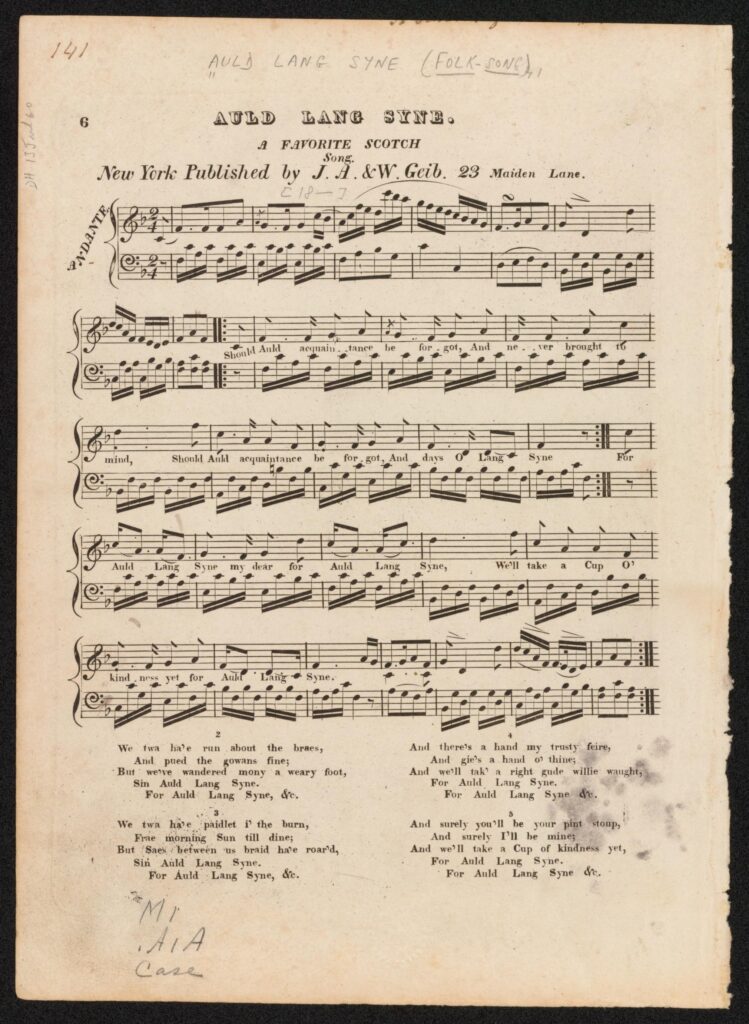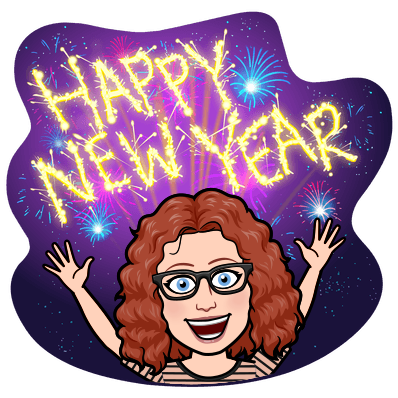
Happy New Year! Sending you a cup of kindness in 2024. Can we ever get enough?
The words, of course, come from the traditional New Year’s Eve song, Auld Lang Syne. Most of us can remember the first line or two:
Should auld acquaintance be forgotAnd never brought to mind?Should auld acquaintance be forgotAnd the days of auld lang syne?
Kudos if you remember the second verse:
For auld lang syne, my dearFor auld lang syneWe’ll drink a cup of kindness yetFor the sake of auld lang syne
The song comes from the Scottish poet Robert Burns. The words were first published in 1796. He kept revising it, and the words from 1799 are the traditional ones we sing today. It goes back even further. He claimed to have written down the words he heard in a song, which dates back to a poem in 1568. (There are seven stanzas, but without the words in front of me, I can get through the first two.)
Why is the song so popular?
The song has been around for centuries and is universal in theme. Here in the States, Guy Lombardo and His Royal Canadians performed the tune on a New Year’s Eve broadcast in 1929. He came from an area in Canada with a large Scottish population. There, it was a tradition for every band to end with the song. I ponder just how poignant the song must have been at that time, only two months after the stock market crashed on Black Tuesday in October 1929. In essence, it sends the message that no matter how hard times are, it’s important to remember old friends and drink a cup of kindness together. (Sniff, sniff, watch the eyes tear up.)
The tradition continues. Vocalists, musicians, bagpipers (it is Scottish in origin, right?) and more perform the song every year as the first words in the new year. For some, it is a touching closure on funerals. Beginning or closing, the theme is of raising a toast to friends and days gone by.
In the final scene of Frank Capra’s “It’s a Wonderful Life,” George Bailey’s brother raises a toast “To my big brother George, the richest man in town.” The film ends with the full ensemble singing “Auld Lang Syne,” for as his angel Clarence wrote, “Remember no man is a failure who has friends.” (Even as I write this, I can’t keep a dry eye. For full effect, listen to this scene on YouTube.)
What does “auld lang syne” mean?
The words “auld lang syne” literally translate as ‘old long since.” They are akin to ‘days gone by’ or ‘long ago.’
In the final scene of the 1989 movie “Harry Met Sally,” Harry tries to figure out its meaning, as the song plays in the background.
Harry: “My whole life, I don’t know what this song means. I mean, ‘should old acquaintance be forgot?’ Does that mean that we should forget old acquaintances or does it mean that if we happen to forget them, we should remember them, which is not possible because we already forgot them?”
Sally: “Well, maybe it just means that we should remember that we forgot them or something. Anyway, it’s about old friends.”
Perhaps the best explanation comes from a 2021 blog post from the US Embassy in Italy:
The lyrics of “Auld Lang Syne” pose the question: How do we best remember the memories, friends, and experiences of years before?
The answer, Burns tells us, is to “share a cup of kindness yet” as we journey into the new year.
Here is a recording of Guy Lombardo’s 1947 rendition. It’s the ‘go-to’ or ‘original’ version many people love.
Wishing you health, peace, and abundant cups of kindness in the coming year.


2 Comments. Leave new
A great read! Thanks for sharing your insights and research. Next year, please turn this into a shareable Facebook post. I’d love to share it with friends who don’t normally read blogs. Happy New Year!
Thanks! I will make a note of that for next year. Happy New Year!